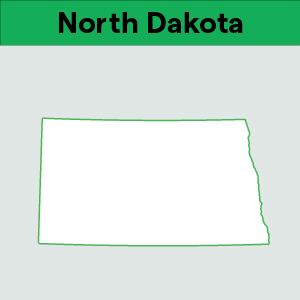What is a voluntary disclosure agreement?
by December 11, 2025
Business is booming and sales are coming in from more states. As your dreams of business success come true, keep an eye out for the onset of tax collectors. Be aware that the Departments of Revenue from most states are stepping up their surveillance of nexus-creating activities because they are good sources of tax revenue.
Got nexus? What now?
The biggest problem most growing companies encounter is the realization that they have had nexus in a state for several years but never collected sales tax in the state. For most e-commerce sellers, inventory housed in other states is the driving factor for establishing nexus, although other business activities can additionally create nexus.
How to handle nexus
Once you discover you have nexus, your course of action includes many options:
1) Ignore the problem… for now. But keep in mind that if a state contacts you with questions on your business activities, your negotiating power is greatly diminished. Penalties, interest and the statute of limitations are usually maximized, to the point of jeopardizing some businesses.
2) Wait to address the problem during the next state tax amnesty program. Tax amnesties are great – but they are few and far between. You also need to read the fine print on all amnesties as they can be traps for the unknowing.
3) Register now and ignore past offenses. In the registration application, the question that must be answered honestly is “How long have you been doing business in this state?” If your answer is anything but the complete truth, you run the risk of perjury and could face legal headaches.
4) Register now and address past offenses. Become a registered taxpayer. Then, through a negotiated process under a Voluntary Disclosure Agreement, settle your past offenses while limiting tax liability to the bare minimum.
The Voluntary Disclosure Agreement (VDA) solution
The best way to solve nexus problems is to have a sales tax professional negotiate a Voluntary Disclosure Agreement on your behalf with the Department of Revenue. The process is fairly simple. Your representative will calculate tax liabilities then negotiate a modified look-back period and reduced penalties in exchange for bringing a new taxpayer to the state. This legal agreement indemnifies your company and saves you significant amounts of money, time and resources.
The VDA is a win-win for both you and the state. Errors are corrected and your record is cleared, while the state identifies a new taxpayer who will begin collecting tax in their state.
Tips about VDAs
1. When calculating unpaid sales taxes, contact customers to determine if they are exempt from sales tax. Collect exemption certificates from qualified vendors. This will limit your past liability.
2. Verify if non-exempt customers already paid use taxes on the products. Tax on a transaction is due only once, so if the tax obligation has already been fulfilled, your liability is eliminated.
3. If records are voluminous, conduct a sample and extrapolate the results to calculate tax due. Make sure you are selecting a good sample.
The VDA will not be accepted if the state has ever contacted your company about nexus. Stay on top of your nexus-creating activities, be diligent about paying sales taxes to states and seek help from a sales tax professional to eliminate costly mistakes.
How TaxJar can help
TaxJar offers one platform to manage every aspect of sales tax compliance from calculations to reporting to filing. If you’d like to streamline your sales tax compliance going forward, try our sales tax compliance platform for 30 days, completely free with no obligation. Get started today.
This guest post is brought to you by Lauren Stinson of Windward Tax.








